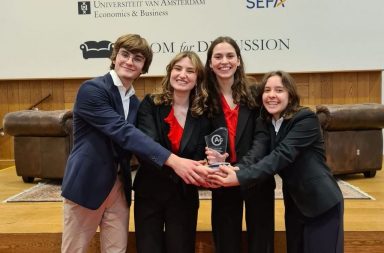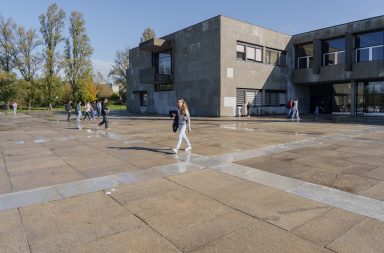This initiative aims to raise awareness and promote the implementation of actions for waste prevention and sustainable management, focusing on the principles of the 3R’s: Reducing consumption, Reusing products and materials, and Recycling waste.
These principles are fundamental to re-evaluating our consumption habits, aligning us with the main objectives of the European Week for Waste Reduction (EWWR), which are to raise awareness of waste reduction, product reuse and recycling strategies; mobilise and encourage the community to develop initiatives on the Week’s key themes; strengthen capacity building by providing specific communication and training tools.
The theme of the 2023 week is “Packaging”, which is in line with the European Commission’s recent proposal to regulate and encourage the reduction and reuse of materials.
Data from the European Commission reveals that packaging makes up 36 per cent of solid urban waste, negatively impacting the environment. The rise of e-commerce and packaging designed for impossible recycling are challenges that the EWWR will tackle, inspiring prevention and reuse actions.
What we can do on a daily basis to make a difference:
- Refuse plastic bags: using a reusable bag for shopping, avoiding the use of disposable plastic bags.
- Opting for bulk products: reducing the amount of packaging.
- Choose products in sustainable packaging: such as recyclable, biodegradable or compostable packaging.
- Use your own cup and/or bottle: avoiding disposable cups and plastic bottles.
- Favour products with reusable packaging: such as glass jars that can be used to store food later.
- Avoid over-packaged products: choose products with fewer layers of packaging and avoid buying items that have too much packaging.
- Buy local products: these not only support the local economy but also reduce packaging as they are not transported over long distances.
- Recycle correctly and take part in recycling programmes: by knowing the recycling requirements and following the guidelines.
- Being aware of daily consumption: questioning whether the item is really necessary and whether the packaging is necessary.
Conscious consumption is key to reducing waste. Join us on this journey towards a more sustainable future!
Sustainable initiatives at FEP: promoting an environmentally conscious community
Sustainable Merchandising: Products with Purpose
The FEP has been investing in a line of sustainable promotional products, including water bottles, infinity pencils and reusable bags, a strategy aligned with internal promotion in the field of sustainability. By investing in sustainable merchandising, the Faculty is reinforcing its commitment to reducing the environmental impact of its promotional activities. This is a crucial step towards a greener campus and the promotion of environmental awareness within our academic community.
Sustainable Innovation at FEP: Significantly Reducing Plastic Consumption
FEP is committed to implementing initiatives to promote environmental sustainability. To this end, the Faculty invested in the purchase of two water dispensers, a measure that has had a notable impact on reducing the average daily consumption of plastic water bottles. Alongside this measure, at the start of the academic year the Faculty offered a reusable water bottle as part of the welcome programme. This initiative reflects the FEP’s commitment to reducing its plastic footprint and promoting more sustainable practices. The adoption of water dispensers and the distribution of bottles not only reduces the waste of plastic bottles, but also encourages the academic community to adopt more environmentally friendly behaviours.
Partnership with LIPOR: Improvements in Waste Management
In partnership with LIPOR, through the Customised Environmental Intervention Service (SIAC), the FEP began an internal process to analyse and improve its internal waste management processes. An initial diagnostic report, drawn up by a technical team from LIPOR, identified opportunities for improvement after analyses and visits to the Faculty’s facilities. We are now at the stage of defining and implementing good waste management practices, such as training the teams responsible for waste collection and sharing practices with the community through signposting and information sharing.
Paper Recycling: Committed to Sustainability
Paper recycling is a reality in all of the EFF’s services and offices. In addition to campaigns to reduce paper use, the emphasis is on the correct collection and recycling of paper. The EFF promotes a proactive approach to minimising paper waste and ensuring environmentally responsible practices.
Battery Collection: Raising Awareness and Sustainability
The FEP has launched a battery collection campaign, emphasising the importance of disposing of these small objects correctly to avoid environmental damage. The collection points, located next to the security guards at the entrances to the buildings, make it easy for the entire academic community to take part. Complementary awareness campaigns will be implemented to inform about the risks associated with improper disposal. LIPOR will be responsible for the collection and proper recycling of batteries, closing the sustainability loop.
At FEP, we are committed to creating an environmentally conscious and sustainable community. Join us on this journey to respect our planet!
We would like to invite you to take part in this mission. To do so, you can submit proposals and ideas using the form.




